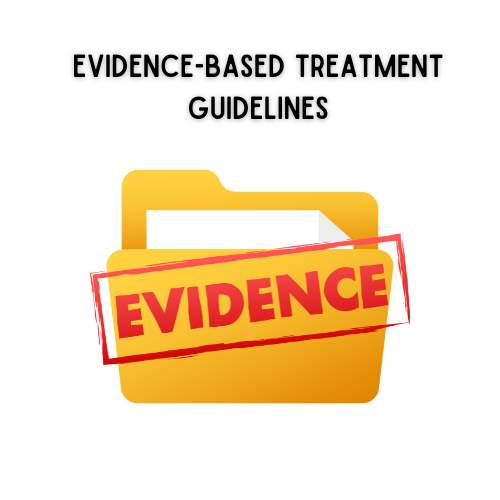Eating Disorder Treatment Guidelines
Treatment guidelines for eating disorders: the best chance for recovery
You may have heard the term evidence-based treatment. What it means is that the treatment is supported by published research demonstrating its effectiveness (in other words, the "evidence"). It gets complicated when there are multiple treatments available for a single condition, as is the case for eating disorders. Which treatment is best? Should they be used alone or in combination? Should adolescents and adults be treated differently? What setting is ideal--inpatient or outpatient? Of course, every patient is different and a thorough assessment is necessary to determine the best treatment plan, but it at least gives you a place to start in thinking about treatment. You can find more information on the types of treatment elsewhere in our blogs.
Enhanced Cognitive Behavioral Therapy (CBT-E) is the leading treatment for anorexia, bulimia and binge eating disorder.
You will want a therapist with training and practice in Enhanced CBT, specifically since the enhanced version differs significantly from standard CBT. And you want to be sure that the therapist adheres to the treatment thoroughly since without a doubt, this is how you will get the best result. The provider should explain that the treatment is time-limited (roughly 20 weeks for bulimia and binge eating; more like 40 weeks for anorexia) and consisting of three stages.
There is broad agreement that, whenever possible, patients should be treated in the least restrictive setting.
In other words, more restrictive settings, like hospitals and residential treatment centers, should only be used by those with the most severe symptoms or medical complications. In these cases, starting treatment in a highly supervised setting is advisable. For those who are medically stable and able to participate in outpatient treatment, it is in their best interest to do so.
Few clinicians use the evidence-based forms of treatment.
Many say they do - or that they combine techniques from several different therapies - but the treatment is diluted and far less effective if not delivered in the way it was intended. There are critical core techniques in the treatment and a very particular approach to systematically changing the behavior.
Without a doubt, it is much more challenging for consumers to find the right treatment. If you have questions, please feel free to reach out and contact us!

